I run a local writing group – Wear Valley Writers – and we’ve occasionally had new members who’ve turned up, said they’re poets, and read us a few of their poems. We’ve listened politely to their heartfelt navel-gazing odes to love, illness, death and general misery, filled with generic abstractions, along with shards, moonlight and gossamer, plenty of end line rhymes, and no attempts at scanning. When asked if they read poetry at all, especially contemporary poetry, they say no, because they ‘don’t want to be influenced’. It’s hard to get beyond this point, and they don’t usually hang around long because they hear some of my poetry and it doesn’t sound like poetry at all; they sense something akin to violence in the way I use words. I can sympathise. Until a few years ago I had little idea of how to discipline my own writing to make it into poetry rather than a faux poetic expression of what people assume poetry should be. My sole training had been ‘O’ level English Language. Throwing words up from my guts and seeing if they stuck to the page had started to earn me a few competition wins and publication, but I also knew I had gaping holes in my skillset – something which didn’t appear to have occurred to the newbies to consider as regards their own writing.
In theory, it’s easy to get help with the craft. If you’re a novice, get started by joining a local group. Or, if you’re like me and have already read widely, perhaps possess a parallel skill (in my case, a music degree specialising in composition) plus a publication history, then you’re likely to be able to produce a CV that will make the people who run Creative Writing MA courses look at you favourably, but there are problems. The obvious one is finance; the less obvious one is physically attending the venue. A couple of years ago, I took a short poetry course, just one afternoon a week for six weeks. I was able to drive myself – but only just. If you suffer from ME as I do, you don’t know from one day to the next whether you’ll have the energy levels to get anywhere. I was lucky to complete the course, but knew I wouldn’t attempt another. There are also many highly regarded residential courses, some of which offer significant bursaries towards tuition and accommodation costs, but if you’re disabled the chances are you’re agonisingly poor, and bursary or not, you can’t afford the drop in income from taking a week off from whatever you do (in my case, giving music lessons) quite apart from energy considerations.
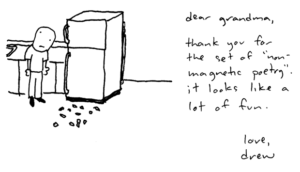
Suppose you manage somehow. You are now among people who most likely have never been in your position. Lovely people. You have been thrust into the world of the middle-class poets who write lovely poetry, and who can indulge their lovely writing habit thanks to a lovely regular income or a lovely partner who supports them. You can recognise such people a mile off because of their overuse of the ‘l’ word on facebook. I don’t blame them for their loveliness and they can’t help having money, but there is often a middle-class, middle-income dullness about it all, and my heart sinks so I don’t enter when the prize in a competition is a place on a lovely residential poetry course. The few times I’ve gone on short versions of such things, I’ve been frustrated by the fact that no tutor has the guts to tell anyone that what they’ve done is far from lovely. True loveliness should make you gasp in astonishment, should make you weep with its utter beauty. It should never be safe. It should terrify. It should break out and hurl itself at the reader and crack open their complacency.
“True loveliness should make you gasp in astonishment, should make you weep with its utter beauty. It should never be safe. It should terrify. It should break out and hurl itself at the reader and crack open their complacency.”
Another barrier to learning craft can be the physical act of writing. We’re supposed to carry notebooks around to jot down moments of inspiration, clever thoughts, and so on. But what if we can’t? People who know me as an artist will be astonished to learn that my hand will not control a pen or pencil with sufficient accuracy to be legible when I write. Even signing my name is problematic. At school, I was the last person in my class to learn to write my own name. No help was available back then for dyslexics or dyspractics; you just got on with it. I spent years clenching my hand so hard to control the pen I suffered cramp and calluses, and I taught myself to read by scanning chunks of text rather than attempting to follow a line from left to right. Once school and college were out of the way, I stopped writing and played the violin instead. Much easier. But then home computers came along, prices eventually dropped, and everything changed. To be a writer, you have to write, and at last I could. Touch-typing at high speed has enabled me to write literally millions of words.
So I can do the typing, I can drive to venues if they’re not too far away, I can even stand up and perform at open mics. But I’m not physically reliable and cannot commit to a full-time course that requires daily attendance at a venue that is not my kitchen table. This is frustrating because craft still must be learnt; there must be a way to do it.
There is.
I started writing in the good old days of msn chatrooms. My health had collapsed, so going out to work was now out of the question, but by pure chance I wandered into a poetry chatroom, enjoyed the company and decided to stay. It would have been rude not to present a poem, so I wrote a few lines and managed well enough to get praise heaped upon me by people who were wildly keen to encourage. I enjoyed the praise, but soon realised this self-congratulatory club was going nowhere as no one had any incentive to improve. I found other chatrooms where the more serious writers were hanging out; people who not only wrote poetry, they read it too. I lapped it all up. I wrote and wrote, and I was lucky enough to be discovered by Kay Green at Circaidy Gregory Press who published my first poetry collection and subsequently a number of novels. I could call myself a writer at last, and the prize money and royalties started trickling in, though still at a painfully modest rate.
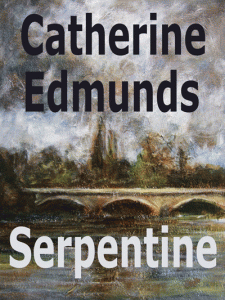
Craft takes time to learn. I had only been going a few years. I hadn’t realised quite how much I didn’t know until I came by chance upon Alex Keegan’s online ‘Bootcamp’. I joined and had a rude awakening, shocked to discover how many aspects of my writing needed serious attention. I set to and I worked, I worked bloody hard, I took all the brickbats, I toughened up, I worked even harder. Bit by bit, ‘Bootcamp’ not only produced in me a real love of the craft; I was learning a new set of skills without having to worry about money I didn’t have or physical energy I could not replenish.
I entered more competitions, sticking mostly to my first love, poetry. I won some very welcome small amounts of cash, but then something far more valuable: the prize for winning the poetry section of the Creative Future Literary Awards was a year’s poetry mentoring from TLC. I was used to Alex Keegan’s forthrightness and wanted more of the same, so I asked that my mentor should be someone who wouldn’t hold back. I ended up with the delightful Ahren Warner, who I worried at first might be too polite and charming, but despite being incredibly nice, he was also able to give me tough and incisive critique. We embarked upon a rigorous series of emailed sessions which enabled me to build on my strengths and recognise my weaknesses. My confidence grew and I submitted with some success to more and more prestigious markets.

I think back to those nervous writers at my group with their heartfelt poems, and I weep. They wanted to write poetry so badly, but they feared being influenced by anyone who had made it as a poet. It was like wanting desperately to be an artist but shielding yourself from anyone from Leonardo da Vinci to Grayson Perry in case something rubbed off and you accidentally became good. They wanted to be told their poetry was lovely, but it wasn’t, it was timid and anything they had wanted to say had been subsumed by an impenetrable wodge of cliché. The regular members of the writing group had been unanimous in telling these putative poets to read more, but this advice had never been trusted, and they had drifted back into their isolation.
The mentoring with Ahren has now finished and I am putting together a new collection. I have also written a novel and nearly two hundred short stories and flashes this year. Alex has made me a better short story writer, and Ahren has made me a better poet, so there’s been an inevitable knock-on effect on my novel-writing. The last month of the mentorship coincided with NaNoWriMo, so I launched into a new novel and easily completed 90,000 words within the month with days to spare. I have leapt forward writing-wise this year. I have the skills, I have the enthusiasm. I’m going for it.
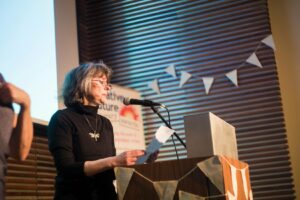
But why do it? Why bother with all this craft, all this slog? Why put myself through it; why keep pushing myself to learn more and more about the craft when I have already proved myself by having hundreds of pieces accepted for publication? Ultimately, because of what writing can do to the reader. I’ll leave the last word to Alex Keegan, because he expresses it so much better than I can.
“… the writer who is still growing keeps examining, the text, the ideas, himself. If he churns something out it’s only the substrate, for on top of what the passable writer writes he wants to add another level, the depth, the subtlety, the perfect word instead of the good word. He wants his work to be so powerful that the paper vibrates and gives off heat, that when his reader finishes, he looks again at the page, his heart sick, soaring, pounding, he closes his eyes. He thinks, Oh, God and is a little changed.”
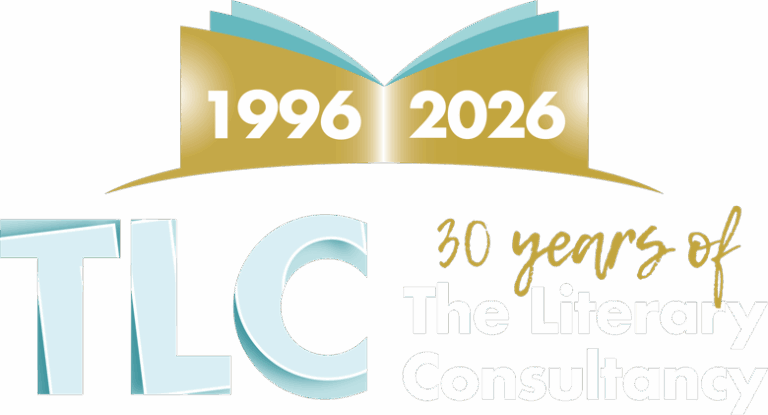
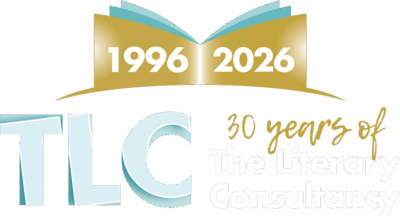


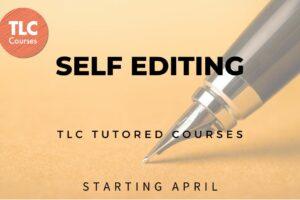


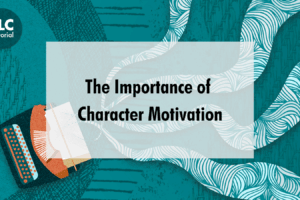

5 responses
Wonderful post, Catherine. I can relate in so many areas.god luck with the new collection. Il be keeping my eyes open for it.
Thank-you. I can relate to many aspects of this article. I know residentials can exclude many people because of finance, which is unfair , but I don’t think you can generalise about the attendees. The tutors can also be quite honest and challenging.
I really enjoyed this, especiallynthe Why Do I Bother? Section. Lots of real gritty reflection and advice which makes a lot of sense. More power to the elbow.
I remember our time in the chat room with great nostalgia. A well-informed and informative piece, Cathy.
I identified with a lot of this, although I am not a poet and my circumstances are different. By that, I mean that the barrier I have to getting help with craft has less to do with finance or accessibility, and more to do with time.
People say that if you really want to write, and get good at it, you’ll find the time. But for those who work full time, and are the bread-winner for the family as well as having obligations to family, it’s not so easy. So you are every bit as concerned about investing your time wisely as others may be about money when it comes to courses and mentors.
Excellent and thought-provoking piece.